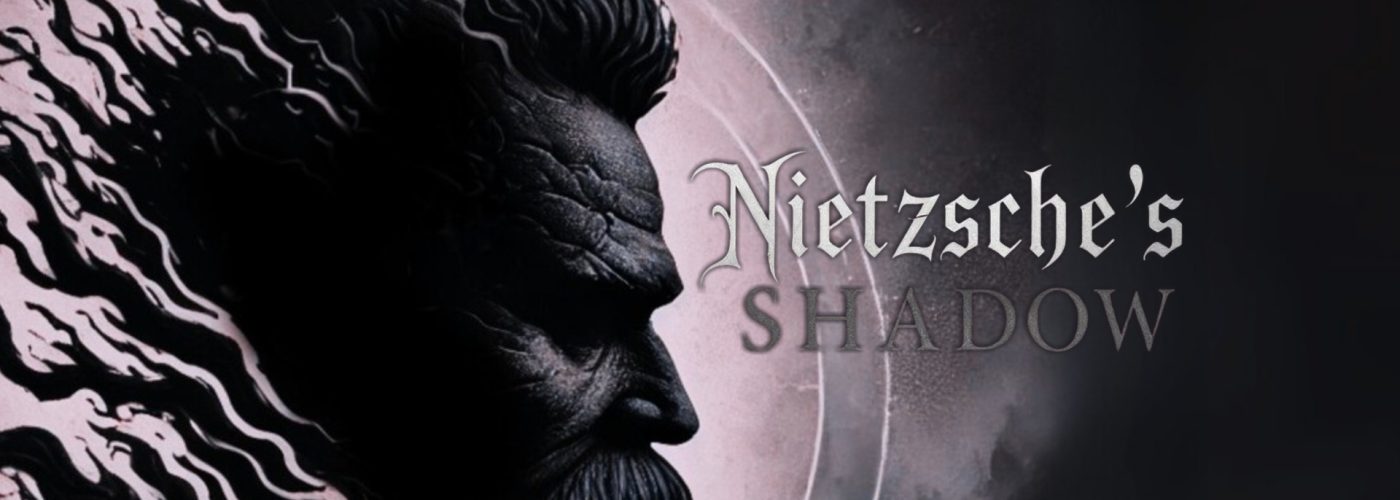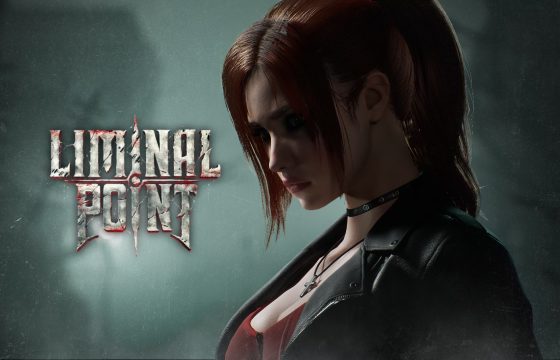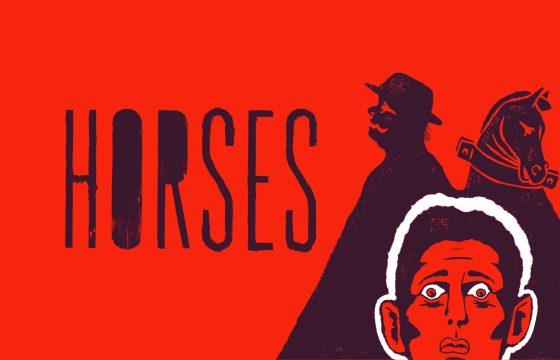In Nietzsche’s Shadow, thought turns into sensation, as players navigate an immersive experience that blends philosophy, horror, and memory.
How can video game mechanics intertwine with the complexity of Friedrich Nietzsche’s philosophy? Nietzsche’s Shadow dares to explore that path.
Created by Philosophica Games, a small Turkish team with a strong academic background in philosophy, Nietzsche’s Shadow unfolds as a narrative adventure at the crossroads of philosophical inquiry and psychological horror. A bold and unconventional experiment that takes players deep into Nietzsche’s inner world.
An Adventure Inside Nietzsche’s Mind
In Nietzsche’s Shadow, players step into Nietzsche’s shoes, searching for the lost pages of his final manuscript in a setting inspired by the Swiss Alpine landscapes he truly loved to explore.
Through first-person gameplay, they move through shifting environments that mirror his mental and emotional states, while the story revolves around an ongoing dialogue with his Shadow, a mysterious, unsettling companion who embodies doubt, darkness, and internal conflict, constantly challenging Nietzsche’s own convictions.
The game builds a richly immersive, sensory experience powered by Unreal Engine 5. But it’s the thematic ambition that truly stands out: concepts like the Will to Power, the Übermensch, Decadence, Slave Morality, and Eternal Recurrence don’t just appear, they come alive.
Players don’t read Nietzsche, they walk through him, hear him whisper through the wind, and meet him in the heavy silence of foggy landscapes.
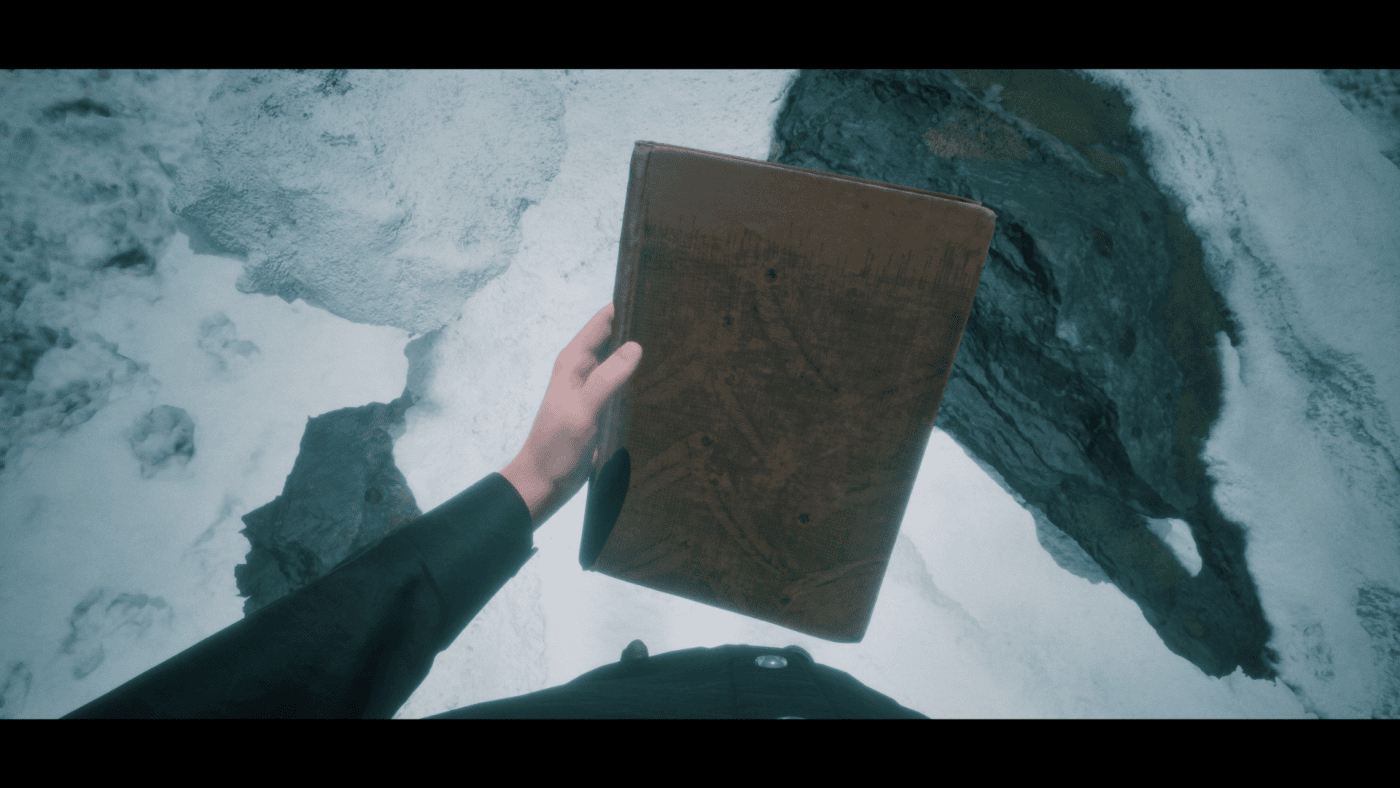
How Do You Play Philosophy?
That’s the core strength the developers claim: Nietzsche’s Shadow invites players to live philosophy through immersion, not through instruction.
Dr. Bilge Salur Çelebi, a former philosophy researcher at Oxford, and her partner reverse the pedagogical approach. They don’t aim to teach, they aim to provoke.
Their goal is to transform philosophical reflection into existential experience. And here lies the real question: can the game make such abstract material accessible to a broader audience?
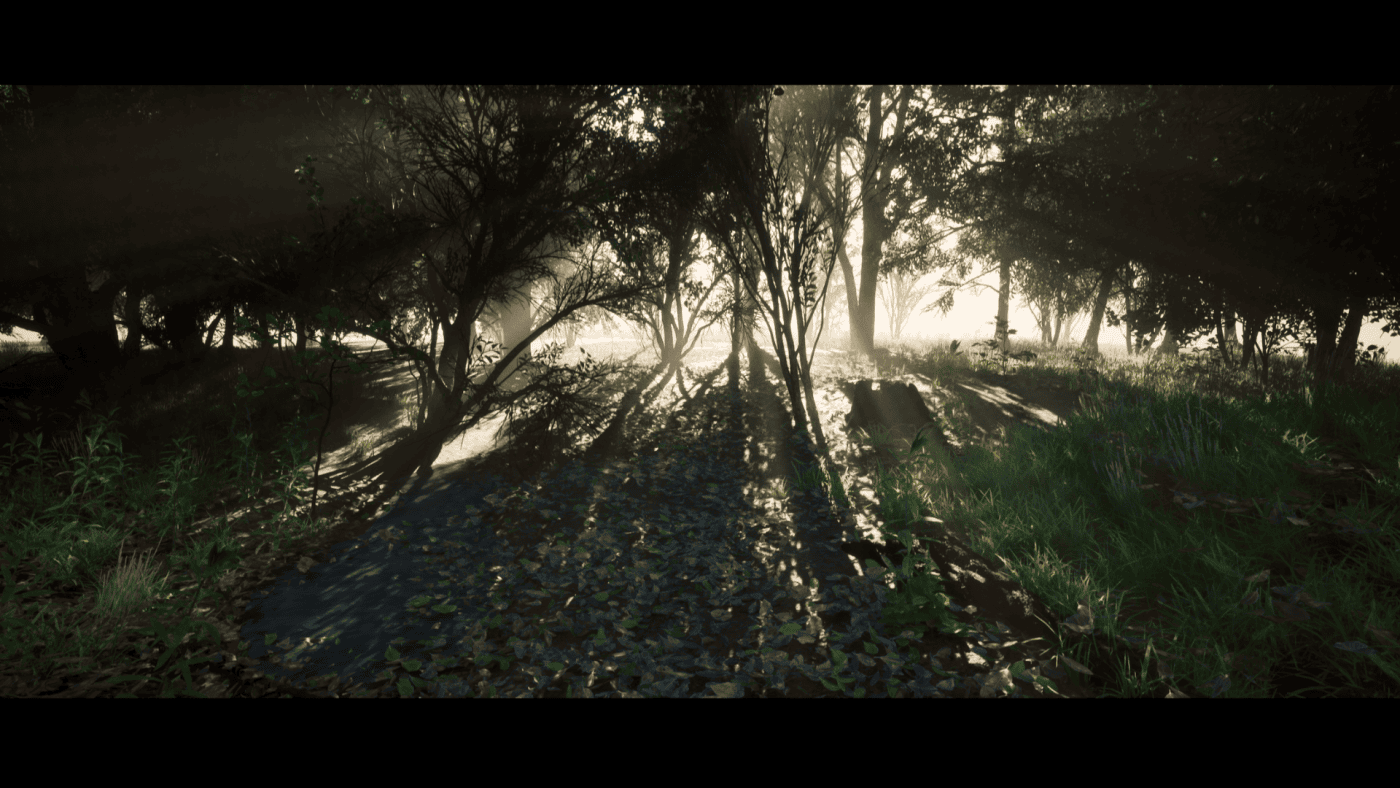
The premise sounds compelling. Still, I wonder: how will they manage to make the content approachable? Will the game target a niche, or reach a wider audience?
It’s a fair doubt. I don’t expect people unfamiliar with philosophy to fully grasp or appreciate this work, but I hope the game speaks to intuitive and deductive thinking, offering a meaningful experience even without prior knowledge.
Philosophica Games seems aware of the challenge. The game doesn’t act like an interactive lecture, it unfolds as an emotional, symbolic journey open to multiple interpretations. Nietzsche’s Shadow doesn’t exclude; it invites. It doesn’t judge; it questions.
Romanticism and the Abyss
Visually, the official trailer reveals an aesthetic that draws heavily from German Romanticism. It directly references the paintings of Caspar David Friedrich, a key figure in the movement.
The central image evokes “The Wanderer above the Sea of Fog”, a visual manifesto of Romanticism.
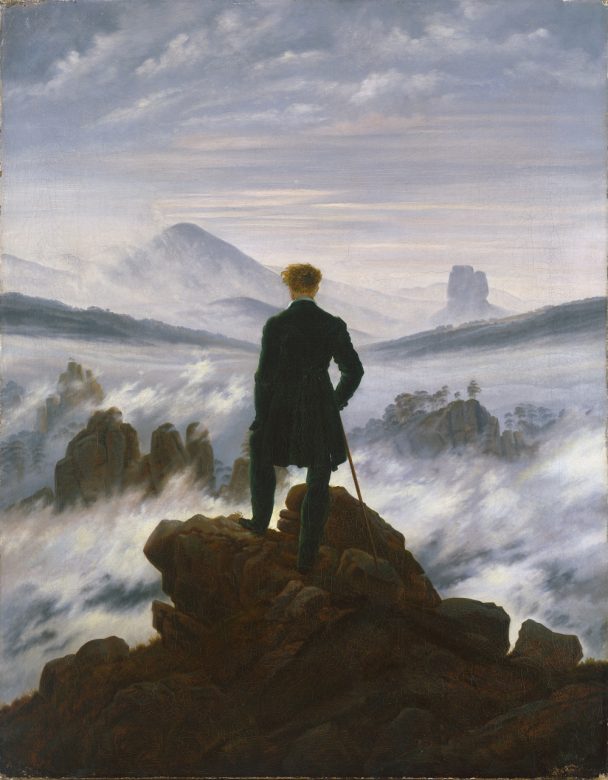
Friedrich painted landscapes to speak of the soul. The wanderer stands not just before mist, but before the mystery of existence, searching for God, losing himself, finding himself again, and reaching transformation. A journey into the invisible.
The visual parallel isn’t decorative, it serves as a key to meaning. Like Friedrich’s figure, Nietzsche stares into the unfathomable. The Shadow becomes a double, a symbol, perhaps a projection of his consciousness, or his madness.
In Beyond Good and Evil, Nietzsche writes: “If you gaze long into the abyss, the abyss also gazes into you.”
Friedrich’s paintings often show solitary figures facing vast natural spaces, their backs turned to us. They don’t just look into physical fog, they confront a spiritual void. Both the painter and the philosopher place the individual before the unknowable, challenging the self and reason alike.
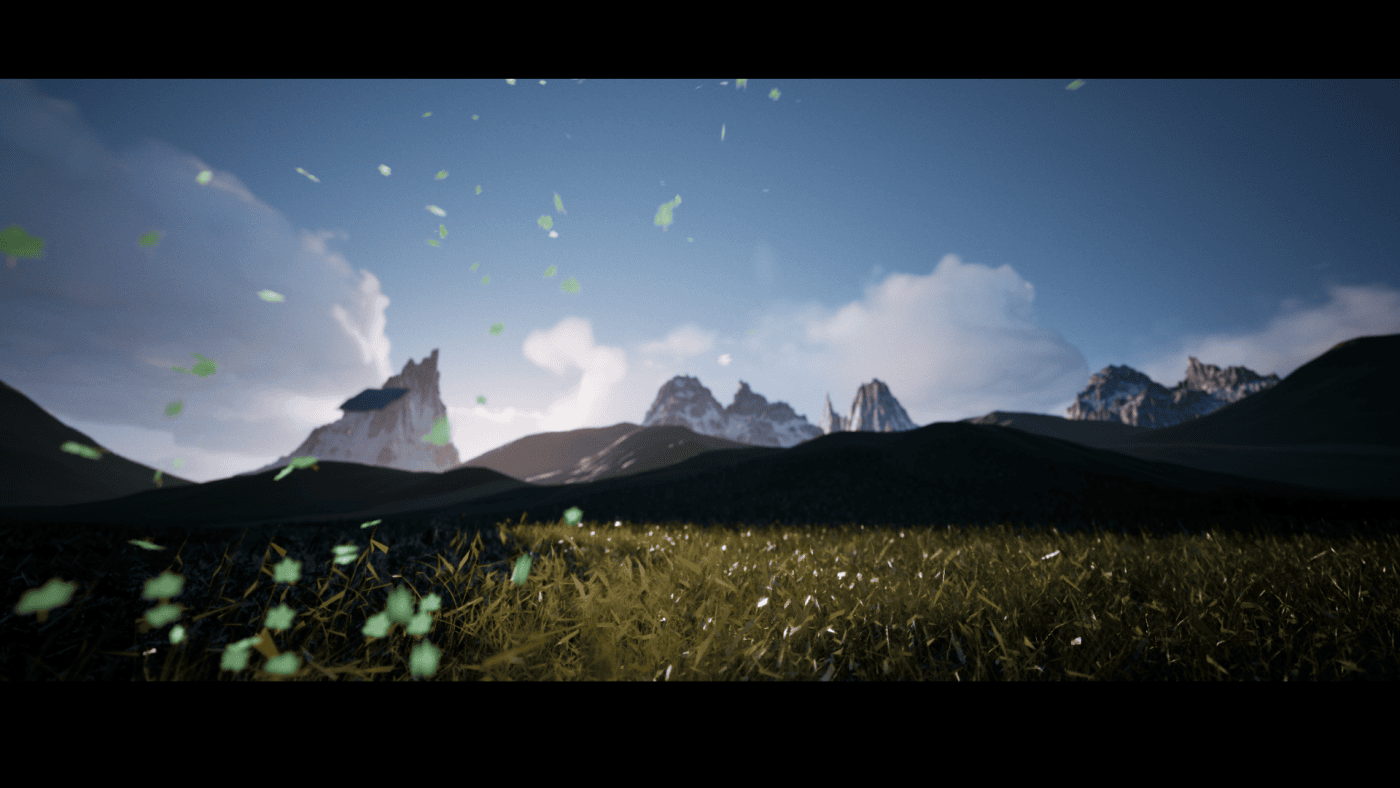
Conclusion
Nietzsche doesn’t offer comfort, he provokes. He doesn’t provide answers, but compels us to face the void and reshape life into art. Nietzsche’s Shadow embraces that challenge. It’s not a game for everyone, but it might become a necessary one for someone.
Its release is scheduled for September 1, 2025, on PC and MacOS, and it may open a new chapter in the dialogue between video games and critical thought. In an age where entertainment often aims to distract, Nietzsche’s Shadow moves in the opposite direction: it forces you to think.
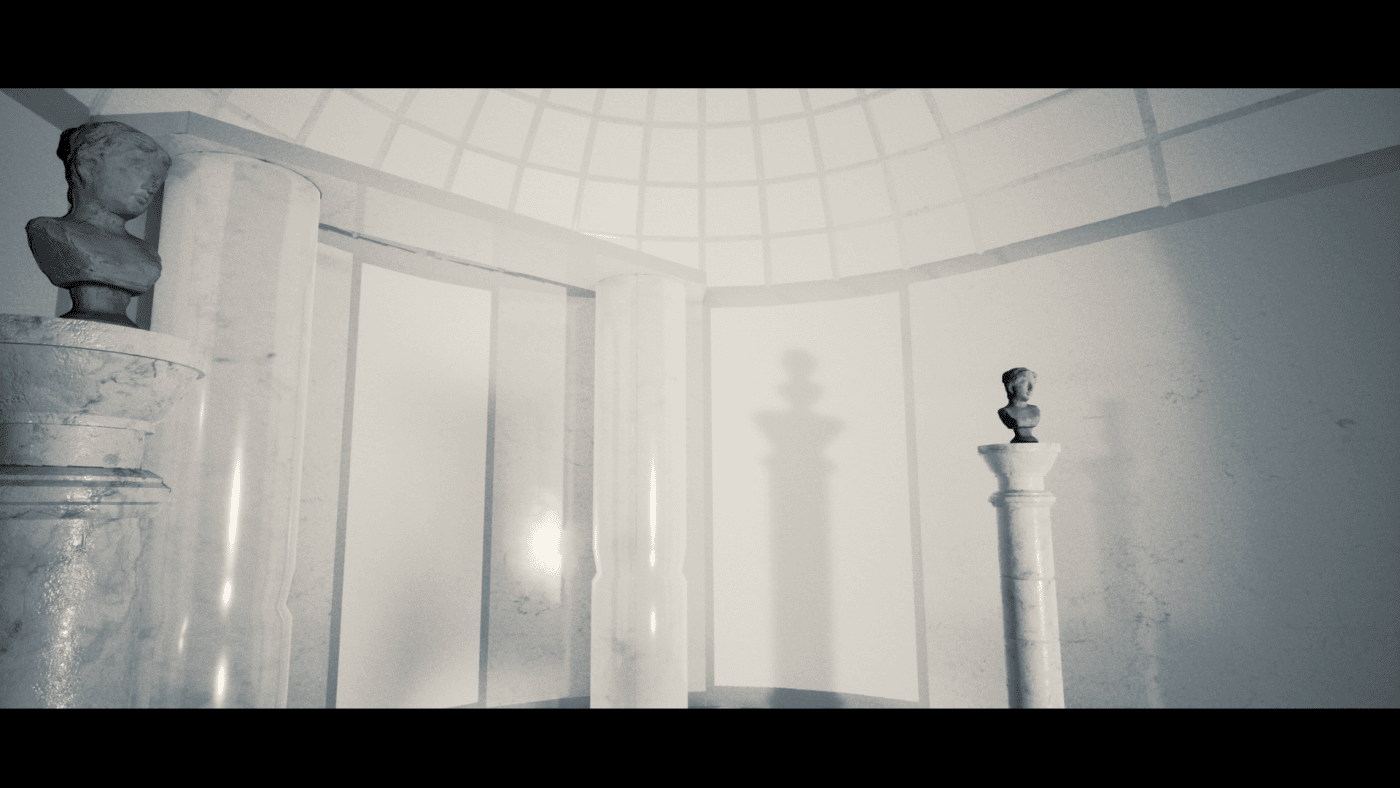
If you want to know more:

